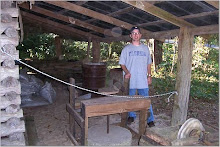The main purpose of the National Council on Public History website is to try and provide the reader a working definition of Public History. What is learned from this site is there is not any central meaning of the term Public History. When reading the National Council on Public History website it is learned Public History has many different interpretations depending on whose interpretation the reader wants to take. There is however one common meaning among all the definitions provided. All the definitions seemed to hold the same general conceptualization that Pubic History places all its information and activities with its audience in mind.
In some cases Public History was explained as an area of history which is studied outside the traditional classroom setting. Public History was shown to be studied in museums and other field experiences where history is seen, heard, read, and interpreted by people with a public history interest. Public historians use these methods of teaching to expand on the methods taught in academic history classes by emphasizing non-traditional evidence and presentation formats by reframing questions which cause the creation of distinctive historical practices.
The web site explained how Pubic History historians have several diverse back grounds. These back grounds include museum curators, teachers, film and media producers, policy advisors, oral historians, professors and students with public history interests. These Historians teach Public History as a history belonging to the public. In doing so they emphasize the public context of scholarship, public history trains historians to transform their research to reach audiences outside the traditional classroom setting.
In April 2007 during the National Council on Public History, Public History was defined as a movement, methodology, and approach that promote the collaborative study and practice of history; its practitioners embrace a mission to make their special insights accessible and useful to the public. Defining the meaning of Public History is a debate that may never get a clear answer because Public History is different for everyone who chooses to study it. It is a history belonging to the Public and is yet to have a central meaning because history is everywhere. Every place people go has history from the grocery store to the park it only takes an interest in Public History to learn it.
The web site explained how Pubic History historians have several diverse back grounds. These back grounds include museum curators, teachers, film and media producers, policy advisors, oral historians, professors and students with public history interests. These Historians teach Public History as a history belonging to the public. In doing so they emphasize the public context of scholarship, public history trains historians to transform their research to reach audiences outside the traditional classroom setting.
In April 2007 during the National Council on Public History, Public History was defined as a movement, methodology, and approach that promote the collaborative study and practice of history; its practitioners embrace a mission to make their special insights accessible and useful to the public. Defining the meaning of Public History is a debate that may never get a clear answer because Public History is different for everyone who chooses to study it. It is a history belonging to the Public and is yet to have a central meaning because history is everywhere. Every place people go has history from the grocery store to the park it only takes an interest in Public History to learn it.

No comments:
Post a Comment